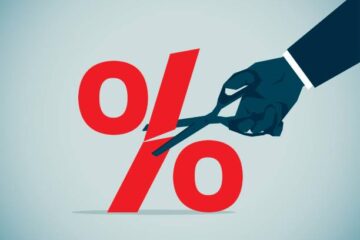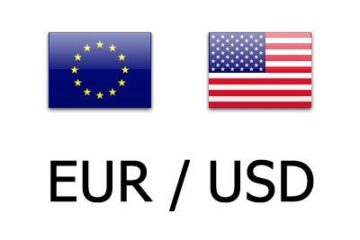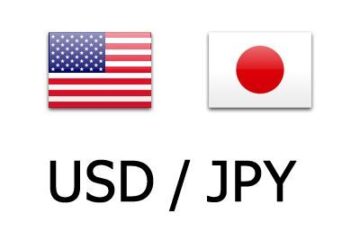Last month, Ford executives shocked fans and skeptics by announcing radical changes to its electric vehicle strategy.
In a series of moves that would cost the automaker up to $1.9 billion, the Blue Oval dialed back its bigger plans for its electric lineup. Initial plans to develop three-row electric crossovers have been scrapped, and in its place is a focus on vehicles it feels will sell better — three-row hybrid SUVs in the same flavor as its popular Explorer family haulers.
“This is really about us being nimble and listening to responses from our customers,” Ford CFO John Lawler told Automotive News in August.
Related: Analysts weigh in on Ford, praise Tesla
“We looked where the segment was evolving, the amount of competition, the customer needs, and then, the size of the battery that needs to go in a pure EV, the cost structure, the pricing, we could not put together a vehicle that met our requirements to be profitable in the first 12 months of launch.”
Ford’s decision can be interpreted as good corporate practice — prioritizing hybrids over EVs makes good fiscal sense for their bottom line. However, a new story published by the Wall Street Journal suggests that Ford is preparing itself for a bigger enemy: Chinese auto firms and their cheap, technologically advanced EVs.
A ChangAn Shenlan S7i electric SUV on display during Auto Guangzhou 2023
China is ‘an existential threat,’ according to Farley.
In a new story for the Wall Street Journal profiling CEO Jim Farley, Ford’s top dog is described less as a traditional businessman and more like an idealist who has found the very thing that could trigger Ford’s ultimate downfall.
Throughout the piece, Farley is described as a hands-on executive obsessed with his competition.
A trip to China in 2023 would be the catalyst and the perfect explanation of why Ford’s current EV decisions make sense for the brand. Farley and other Ford executives got the full picture of their Chinese competition during that trip.
According to the Journal, the obsession started when Farley and Ford CFO John Lawler test-drove an electric SUV made by Changan, Ford’s joint venture partner in China. Here, they found a car that “was smooth and quiet” and featured an upscale cabin with easy-to-use technology, prompting the executives to sit “silently, stunned at the progress Changan had made.”
“Jim, this is nothing like before,” Lawler reported saying to Farley after the drive to the Journal. “These guys are ahead of us.”
More Business of EVs:
Waymo finds new way to bring chaos to quiet city streetsGavin Newsom’s ‘EV mandate’ is under U.S. Supreme Court threatBMW’s clever, new EV app is a privacy nightmare
The visit was just one of many examples the Journal mentioned of his obsession with Chinese EVs, which he shared with Ford’s top brass. A series of visits to the People’s Republic over the past 18 months would shape his motivation to alter Ford’s approach to EVs.
Shortly after one visit to China, Farley arranged for Chinese EVs to be shipped to Michigan for further inspection by Ford executives and directors. These included electronics giant Xiaomi’s runaway hit, the SU7 EV, and the Li Auto L6, a minivan that Ford executives compared to “business-class air travel or a home theater.”
Additionally, it was noted that last year, the Ford CEO watched engineers dissect an EV from BYD, which revealed “elegant, low-cost engineering.”
As a person who first cut his teeth as a marketing executive at Toyota, he sees Chinese EVs as an immediate threat in key markets like Europe, but also a long-term risk in North America regardless of tariffs and protectionist measures.
He sees the rise of Chinese firms as a pattern similar to the rise of Japanese automakers like his former Toyota during the 1980s and 1990s and South Korea’s Hyundai and Kia in recent decades. “I’ve seen this movie before,” Farley told the Journal.
Related: Elon Musk has dropped the ball with an influential EV buyer base
Over the past year, Ford CEO Jim Farley has often highlighted the abilities of Ford’s California-based “skunkworks” team, an independently operated faction tasked with making a symbiotic next-generation electric vehicle platform that will be the guts of Ford’s next EVs.
As per the Journal, the team is an example of how he sees the threat of China as an opportunity to try something that would effectively improve Ford’s corporate culture and how it develops new cars.
“Either he can make us uncomfortable, or we can wait, and the Chinese can make us uncomfortable,” Former Tesla and Apple executive and present-day Ford chief EV, digital and design officer Doug Field told the Journal.
The Journal’s story closed with a retelling of an encounter between Field, Farley, and other Ford execs at Ford’s design studio. They huddled around a laptop, looking at a spreadsheet of line items for a future midsize electric pickup.
Their goal was to extract $800 in cost from the prototype of their EV. Traditional Ford thinking would prompt them to remove features like a heated steering wheel and a front trunk, but Farley interjected their brainstorming session to note that they might be cutting too many corners.
In his words, they were risking “the product could end up being really sh—y.”
Ford Motor Company, which trades under the symbol F on the New York Stock Exchange, is down 0.55% today, trading at $10.92 at the time of writing.
Related: Veteran fund manager sees world of pain coming for stocks


